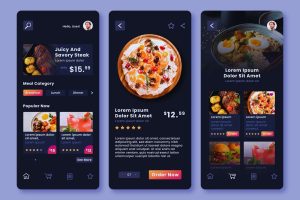In the competitive hotel industry, travelers are no longer just looking for a comfortable room — they’re seeking experiences they can remember and recommend.
Emotional marketing for hotels allows you to connect with guests on a deeper level, building loyalty, trust, and brand recall.
With more than 15 years of experience integrating strategy, technology, and digital marketing in Colombia, Digisap has helped hotels in Bogotá, Medellín, Cali, and Barranquilla transform their digital communication and create memorable experiences through emotions, data, and creativity.
1. The challenge: Guests don’t buy services, they buy emotions
Today, choosing a hotel isn’t just about price or location.
Guests choose places that make them feel something — comfort, inspiration, connection, belonging, or luxury.
The challenge for hotels lies in transferring those feelings to their digital channels — from their website to social media and email.
Brands that manage to evoke emotions in their customers are up to 80% more likely to earn repeat bookings, according to the Harvard Business Review.
2. How emotional marketing transforms the guest experience
1. Connection before, during, and after the stay
Emotional marketing aims to create a more human relationship.
From the first digital interaction to check-out, the guest should feel that the hotel understands their desires and lifestyle.
Personalization and empathy are key — every message, image, and detail should reflect care and authenticity.
2. Stories that inspire and build loyalty
Telling real stories about guests, staff, or the property’s history creates identification and emotional resonance.
For example, in Medellín, a hotel can highlight its connection with local art; in Bogotá, its commitment to sustainability; in Cali, its warm and welcoming hospitality.
3. Technology with soul
Tools such as artificial intelligence and data analytics make it possible to understand behavior patterns and personalize the experience without losing the human touch.
Digisap integrates AI and smart CRM systems to anticipate guest needs and create memorable interactions.
3. Success stories in Medellín: Emotions that build loyalty
Binn Hotel
Binn Hotel worked with Digisap on an omnichannel emotional marketing strategy focused on connecting with premium guests.
Through inspiring visual content, personalized messaging, and automated communication on social media, it increased its return rate of frequent guests by 42% and improved its average experience rating on review platforms.
Zarzo Hotel Boutique
Zarzo Hotel Boutique, known for its contemporary style in Medellín, adopted a storytelling and digital personalization strategy.
Messages were crafted around the guest’s emotional profile: relaxation, adventure, or romance.
Result: a 38% increase in direct bookings and 25% more positive mentions on social media.
23 Hotel
23 Hotel partnered with Digisap to implement an emotional automation system that sends personalized emails based on the travel purpose (business, leisure, couples).
It also incorporated visual storytelling into its website and social media, achieving a 35% increase in organic bookings.

4. Common objections about emotional marketing
“My hotel doesn’t need emotional marketing.”
Every hotel sells emotions — whether they realize it or not.
The difference lies in who communicates them better.
Ignoring this approach means losing the chance to build loyalty among guests who seek connection, not just comfort.
“I don’t have the budget for emotional campaigns.”
Emotional marketing doesn’t require large budgets — it requires authenticity and strategy.
With Digisap’s guidance, many hotels have achieved remarkable results using their own organic channels.
“I don’t know where to start.”
The first step is to understand your guest — what moves them, what they value, and how they perceive your brand.
From there, Digisap designs personalized strategies combining data, creativity, and technology.
5. Practical strategies to create memorable experiences
- Define the main emotion your brand represents (e.g., calm, sophistication, closeness).
- Apply visual storytelling in photos, videos, and texts to convey that emotion.
- Personalize communication with CRM and artificial intelligence.
- Train your team in emotional hospitality — the experience starts with the first greeting.
- Request a free diagnosis with Digisap to develop an integrated emotional marketing strategy tailored to your hotel.
FAQ: Frequently asked questions about emotional marketing for hotels
1. What is emotional marketing for hotels?
It’s a strategy that aims to emotionally connect with guests to increase satisfaction, loyalty, and recommendations.
2. Why is it important in hospitality?
Because travelers choose experiences, not rooms. Emotions drive both decisions and repeat visits.
3. How is it applied in practice?
Through storytelling, personalized messages, visual design, empathetic customer service, and omnichannel communication.
4. What results can I expect?
An increase in direct bookings, stronger online reputation, and greater guest loyalty.
5. How can Digisap help?
Through strategies based on analytics, automation, and creativity — tailored to the emotional DNA of your hotel brand.
Emotional marketing for hotels isn’t a trend — it’s the heart of modern hospitality.
When guests feel understood and cared for, they don’t just return — they become ambassadors for your brand.
With more than 15 years of experience integrating strategy, technology, and digital marketing, Digisap helps hotels in Medellín, Bogotá, Cali, and Barranquilla create memorable experiences that build loyalty, inspire, and sell.
Request a free diagnosis with Digisap and discover how to turn your guests’ emotions into the driving force behind your hotel’s growth.





